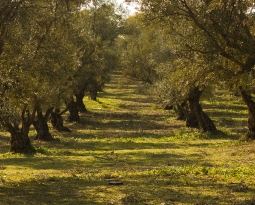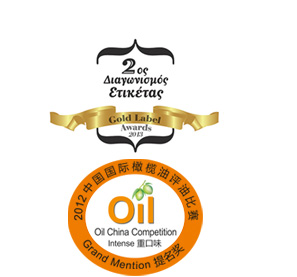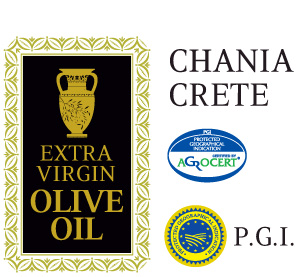
OLIVE OIL: THE RETURN OF THE ANCIENT MEDICINE
Olive oil will appear on shelves of pharmacies in the future, as scientists discover more and more qualities which benefit our health. This precious national product has these qualities mentioned.
It all started in the United States market, where “specialized olive oils” are displayed in shop windows of pharmacies.
The University of Athens research group’s investigations, led by Professor of Pharmacognosy and Chemistry of Natural Products (the pharmaceutical branch of the institution) Mr. Prokopis Magiatis, which were encouraged by the information about the medicinal impacts of oil in ancient Greece, proved that except for the mineral properties it is known for nowadays which were mentioned in the folk proverbs, olive oil has antioxidant properties, that protects the nervous system, the cardiac system , and other body parts.
The new invention is a substance called “eleokanthali”, which has a strong anti-inflammatory action, equal to that of medicine, and this substance causes a “burning” feeling in the throat or when swallowing. This is an indicator of good quality of oil for the experienced producers of olive oil. There is also a substance “eleasimi”, which is a strong antioxidant substance of olive oil.
Two thousand years ago Dioskuridis recommended olive oil which is made from unripe olives as the best for our health.
In addition, he recommended using this particular olive oil to treat toothache or headache, like classic non-steroidal anti-inflammatory drugs are used nowadays.
Dioskuridis obviously meant the well-known green olive oil, which is produced from unripe olives in the early olive season (wet fruit is an unripe fruit). Therefore, from ancient times it was known that different kinds of olive oil had a different impact on the protection of health.
Mr. Magiatis and his colleague Eleni Melliou conducted studies from 150 samples of olive oil from regions Messinia, Laconia, Ilia, Corinth, Argolis, Attica, Viotia, Evia, Halikidiki, the Ionian Islands, Preveza, Thasos island and Lesvos, as well as California (USA) and they came to the conclusion that the quantitative content of the anti-inflammatory substances in the oil produced from the Koroneiki olives is very high, and the quantitative content of those substances in the oil from the municipality of Messinia is far above the average.
This fact, according to Mr. Magiatis, it depends on many complex reasons, such as climatic conditions, soil composition, probably from the treatment conducted by producers and treatment of oil mills, etc., and according to his observations, it is necessary to conduct more in-depth studies to clarify what affects the quality of olive oil, and to adopt the measures that will additionally improve it and show the unique properties of the olive oil in each region.
The conducted research, as Mr. Magiatis specifies, does not extend to gustatory qualities of oil, they are only related to the prospects for its use in terms of health protection.
Furthermore, it was discovered that Extra Virgin olive oils, which are produced in Greece, have large oscillations of concentration of the investigated substances, each substance has amplitude from 0 to 200 mg/l, and the total oscillation of parameters varies from 0 to 450 mg/l.
Also, it was found that some of the Greek varieties (Megaritiki, Manaki, Aguromanaki, Adramitini), regardless of the origin, have a relatively small amount, and this fact confirms the traditional knowledge and experience that these varieties do not “burn” and may be consumed directly, and they are prefered in the confectionery industry.
The variety, which showed the greatest dynamics of production of the investigated substances, is called Koroneiki.
But even in the case in which oil was of the same class and from the same geographical region, there was a substantial fluctuation of indicators that have been correlated to the olive harvest season (i.e., the degree of maturation of the olives), and also to a mode of operation of oil mills (type and temperature conditions). As a result, it was obvious that when the olive is not irrigated, on undergoing the process of transformation into oil at an early stage on the two-phase oil mill by cold press, its maximum concentration is reached, and this conclusion coincides with the conclusions of other recent Greek and International Studies.
However, despite the fact that this phenomenon is multifactorial and complex, and more extensive studies are needed with more numerous samples from all over Greece, it was found that statistical samples from the Messinia region had the highest average content of substances compared to the total average value obtained from the samples of the rest of Greece and in addition, in certain samples there were some of the maximum values obtained globally.
It is noted that in the region of Messinia non irrigated Koroneiki variety are grown almost exclusively, most oil mills are two-phase and producers themselves are very sensitive to the questions of harvest season and the temperature conditions for oil production.
Of course, says Mr. Magiatis, the other regions of Greece have similar characteristics, and further research should be carried out on their establishment and attraction. Some samples from the region of Laconia, Thasos and Crete have shown such dynamics.
Also, there was a huge difference due to the indicators which were observed in random samples of olive oil available in the trade.
Another significant feature was discovered: each variety has its own chemical set, its “fingerprint”, which reminds us of wine.
As a certain wine has its own character and is used in different circumstances, a certain olive oil is different and it should be treated with the appropriate respect.
“The day is not far when we will see specialized shops on the Greek market which sell exclusively olive products, and in particular, small producers’ standardized olive oil with specific characteristics, both of class and geographical origin. Maybe the day is not so far when we will also see processed olive oil cross the threshold of pharmacies “- informs the professor.
And finally, olive oil is a national product and it needs support on the research level for further possibilities of use.
“It is obvious that in the future, by means of methods which we already have, olive oil will be certified by content of specific bioactive substances, and thus it will not be just a healthy ingredient, but also a medicine of the future.”
A support group for olive oil studies operates in the University of Athens, and this group collaborates closely with the Center for olive oil in California and accepts samples for analysis from any manufacturer interested in order to conduct a complete cartography of Greece and in order to popularize Greek olive oil.
“Our dream is to create a university center of olive oil, which will be engaged in research of Greek olive oil and its contribution to human health” – concludes Mr. Magiatis.










